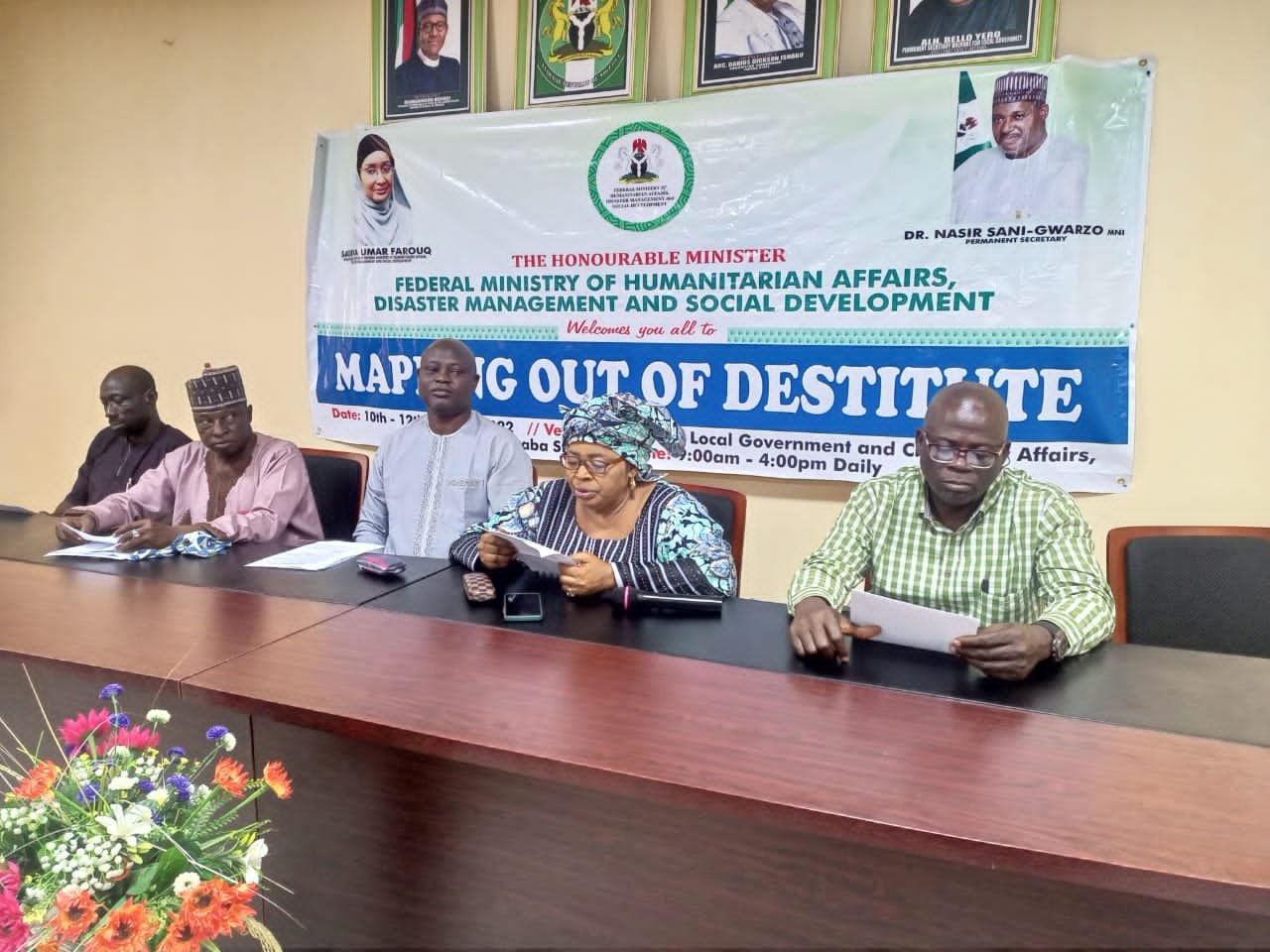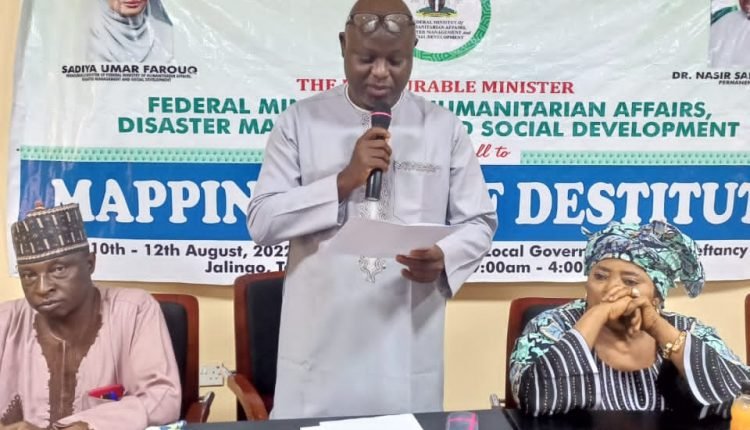Destitution in Nigeria a grave concern and National embarrassment- Sadiya Farouq
Sylvanus Viashima, Jalingo
The Minister of Humanitarian affairs, disaster management and social development Hajia Sadiya Umar Farouq has described the level of destitution and street begging in Nigeria as a matter of grave concern and a national embarrassment.
The Minister said this in Jalingo on Thursday at the Mapping Out of Destitutes in Taraba state as part of ongoing efforts to rid the state and country of the menace.
Farouq who was represented by the Director of Social Development in the ministry Mr Taiwo Ademola noted that there has been an unprecedented increase in the number of street beggars and destitutes.
“As you may be aware, in Nigeria, there is an unprecedented increase in the number of beggars and the destitute in urban areas Several scholars have suggested that begging and destitution are associated with the Low and medium income Countries (LMICs), faulty socio-economic, weak health systems historical background. This in turn is characterized by low income earnings, high unemployment rates, explosion in cost of living, high rates of population growth, inappropriate public policies, poor health status, continued rural- urban migration and massive citizen’s displacements.

“Consequently, Destitution in most parts of Nigeria had become a matter of grave concern for the continued wellbeing of the country and was increasingly a source of national embarrassment and that the large number of children captured in the destitution net (most of whom could be found roaming the streets begging for alms or hawking at traffic spots) come at a huge cast to the nation in terms of loss of critical human capital and erosion of family values.
“In spite of the fact that, street begging constitutes a nuisance to the health, physical and social environment of cities, the continuing reliance on the activity as a means of livelihood amounts to a waste of human resources and impacts negatively on the health of the beggars. It equally becomes a burden on the already overstretched meager-income earners of the majority of the work force. As a result of poor economic situation, many people not only resort to begging as a means of survival but have professionalized it like a trade.
Read Also: 5 NYSC members to repeat service year in Sokoto
“The Federal ministry of Humanitarian Affairs, Disaster Management and Social Development has as one of its mandates to manage the formulation and implementation of fair focused social protection and inclusion programmes in Nigeria. My work and that of my Ministry are primarily focused on the vulnerable populations in Nigeria, across all regions, religious, ethnic and tribal lines. It is well known that the most affected of the vulnerable populations are women and children, and it is our mission to empower these sections of the population through a variety of means
“This exercise is targeted at Fifty (50) Destitute, Children, and Vulnerable who will be drawn across the Local Government Areas in Taraba State. It is also expected that, the mapping out exercise will critically provide base line scientific information that is required for the improvement of health condition and development of a vocational training intervention programme for beggars with a view of contributing to the economic growth in the society before the deployment of a vocational training for the beggars and the destitute in the state”.
The state’s commissioner of Social Development Mrs Hauwa Andeyasto in her welcome address commended the Ministry for the initiative and urged the participants to take advantage of the provisions to improve on their wellbeing and that of those around them.
She noted that the state government has taken steps in the past to address the menace through several youth and women training and empowerment schemes that have helped to take several youth and children off the streets.
Andeyasto however noted that the problem has remain a major concern as some people are making it a career with increasing spectrum of techniques deployed often to even defraud unsuspecting members of the public.

